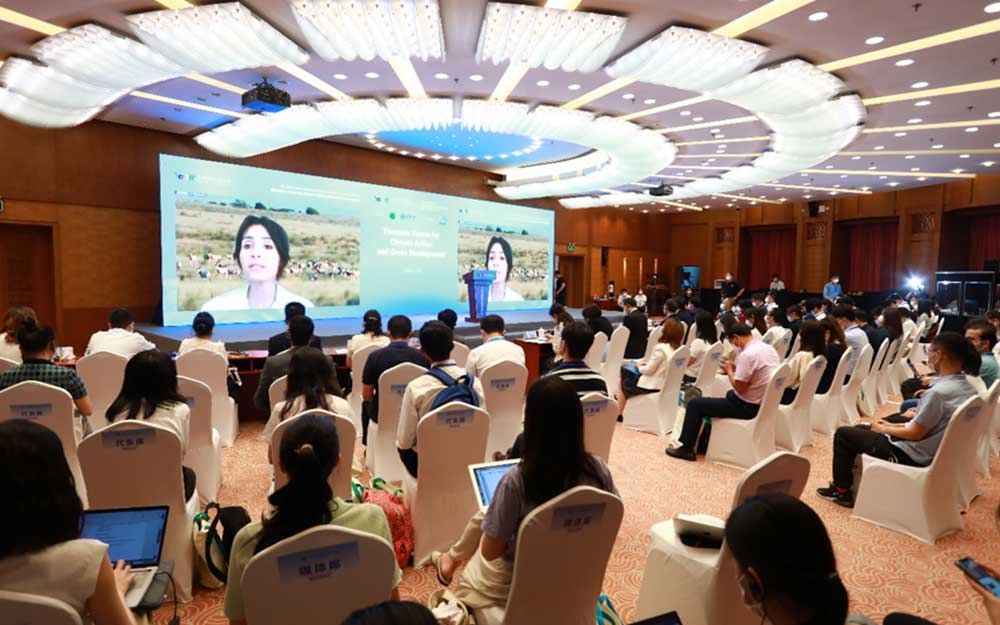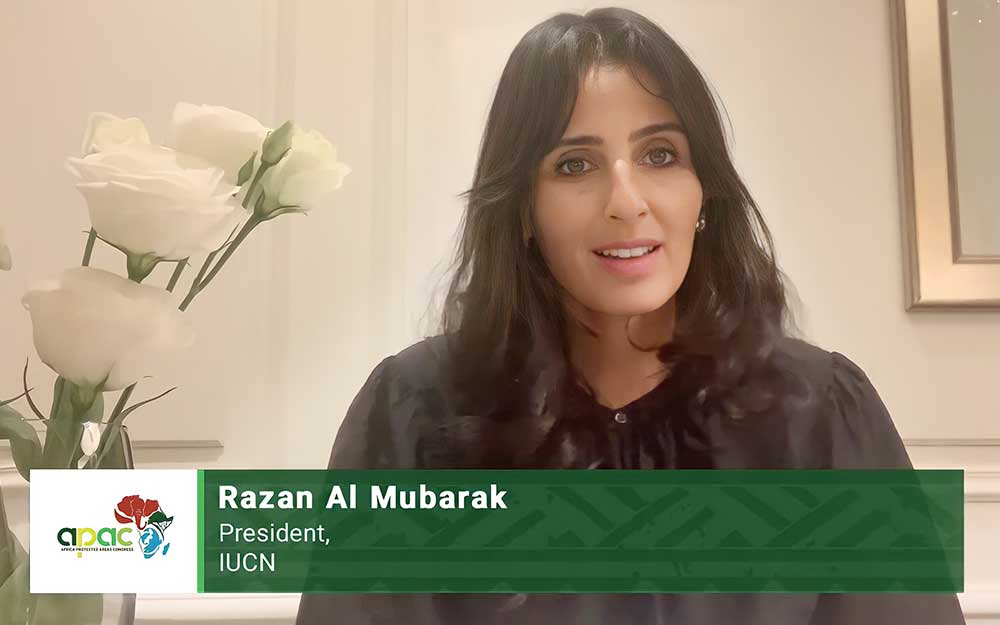Biodiversity is facing significant threats, including an estimated loss of 10,000 species each year due to extinction. But there is an opportunity for a better future, and the leadership of young people is essential to that effort, according to IUCN President Razan Al Mubarak.
In a speech to World Youth Development Forum in Beijing on July 22, 2022, Ms. Al Mubarak highlighted the importance of giving young people more opportunities to be part of the decision-making process.
"I'm part of a generation that is making decisions for a future that I won't be a part of, but the consequences of my generation's decisions will be felt by the youth of today,” said Ms. Al Mubarak. “That’s why we need to build and bridge the gap between the generations so we can benefit from this collective wisdom."
She added: "There is much hope for a better future, but not much time. Youth must collectively agree on your vision for the future and the place you want nature to have in that future. It's critical that youth are given the platform to conceptualize this vision."
Other speakers at the Forum included Andrea Meza Murillo, deputy executive secretary of the United Nations Convention to Combat Desertification; Li Gao, director-general of China’s Climate Change Department of the Ministry of Ecology and Environment; and Eric Berglof, Chief Economist of the Asian Infrastructure Investment Bank.

